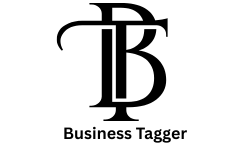türk idla – Meaning, Culture, and Relevance

Across cultures, certain terms transcend language to embody identity, values, and tradition. One such phrase is türk idla, an expression that continues to intrigue linguists, cultural historians, and those exploring the depth of Turkish heritage. It is more than a phrase—it is a cultural anchor, linking past generations with the present.
In this article, we explore what türk idla means, how it emerged, and why it continues to matter in today’s world.
Table of contents
What is Türk İdla?
The phrase türk idla holds layered meanings, shaped by both history and culture. While direct translations may vary, türk idla is often used to represent expressions, idioms, and oral traditions that preserve Turkish heritage.
At its heart it is about communication—how Turkish culture has historically conveyed wisdom, humor, and identity through language. It is both a linguistic tool and a cultural philosophy, reminding us that language is not just words but a mirror of community and belonging.
Historical Roots of Türk İdla
Oral Tradition as Foundation
The earliest roots of türk idla can be traced back to nomadic Turkic tribes. In societies where oral tradition was the main form of knowledge transfer became a powerful instrument. Elders used it to share stories, proverbs, and moral lessons, embedding cultural values within everyday speech.
Shaping Turkish Identity
Over centuries evolved into a marker of Turkish identity. From epic poems like the Book of Dede Korkut to local folktales was central to storytelling, ensuring that culture and history were remembered and passed down.
The Linguistic Role of Türk İdla
Expression Beyond Words
Language is the soul of a culture and is proof of that. It carries the rhythms, idioms, and symbolic layers that make Turkish speech unique. Through people communicated not only literal meaning but also subtle humor, wisdom, and collective values.
Evolution Across Eras
From Old Turkic scripts carved into stone to modern Turkish used online it has adapted with time. Despite changes in grammar and vocabulary, the cultural essence has remained remarkably intact, highlighting its resilience.
Cultural Significance of Türk İdla
Preserving Identity
Türk idla is deeply tied to identity. Whether in Anatolia or among Turkish communities abroad, the use of connects people with their roots, strengthening bonds of belonging.
Storytelling and Shared Memory
Turkish folktales, epic stories, and proverbs are steeped in türk idla. These stories are more than entertainment; they preserve collective memory and embed cultural values into everyday life.
Social Rituals and Customs
In weddings, community gatherings, and festivals it finds expression through blessings, sayings, and proverbs. This makes not only a language tool but also a ritualistic practice that ties cultural events together.
Türk İdla in the Modern World
Cultural Revival
Today, türk idla is seeing renewed interest as communities look to preserve their roots in a rapidly globalizing world. Cultural centers and schools incorporate into their programs, ensuring younger generations understand its importance.
Academic and Digital Presence
Scholars analyze türk idla to study how language evolves alongside identity. Meanwhile, digital platforms ranging from cultural blogs to social media groups have embraced giving it new visibility in modern spaces.
Global Relevance
Though distinctly Turkish resonates globally as an example of how cultures use language to preserve values. Linguists worldwide consider a model for understanding the link between oral tradition and identity.
Challenges Facing Türk İdla
Like many traditional expressions faces challenges in the modern world.
- Language modernization: Younger generations often lean toward simplified speech influenced by globalization, reducing everyday use of türk idla.
- Documentation gaps: Much of it exists in oral tradition, meaning parts risk being lost without proper recording.
- Perception barriers: Some view as old-fashioned, creating generational divides in appreciation.
Yet, renewed academic and cultural interest suggests türk idla will continue to adapt and survive.
The Future of Türk İdla
The survival of türk idla depends on integration into education, literature, and media. By blending traditional expressions with modern platforms it can thrive as both a heritage marker and a living cultural tool. Initiatives such as storytelling workshops, online archives, and language education programs are ensuring its continuity.
The future of türk idla is not about preservation alone it is about adaptation. By engaging with new generations can remain a vibrant part of Turkish cultural identity.
You may Like this Ford Recalls Hundreds of Thousands of Maverick Trucks.
Conclusion
Türk idla is not just a phrase but a cultural compass, guiding identity, tradition, and belonging across centuries. From oral traditions and storytelling to digital revival it shows how language evolves without losing its essence.
As Turkish society continues to modernize it remains a vital reminder of heritage. Its story proves that culture is not static it lives, adapts, and continues to inspire. Preserving it is not only about honoring the past but also about enriching the future.
FAQs
1. What is türk idla in simple terms?
It refers to idioms, expressions, and oral traditions that carry Turkish cultural and linguistic identity.
2. Why is türk idla considered important?
It preserves heritage, conveys values, and strengthens identity across generations.
3. How can young people learn about türk idla?
By engaging in storytelling sessions, learning proverbs, and exploring digital resources dedicated to Turkish heritage.
4. Can türk idla be appreciated by non-Turkish speakers?
While its idiomatic depth requires cultural context, its role as a cultural heritage tool can be understood universally.
5. What is the future of türk idla?
The future lies in education, digital preservation, and cultural engagement to keep it alive and relevant.





